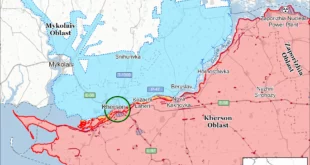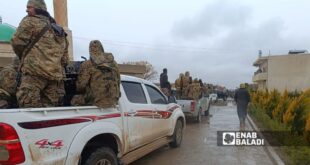Two days before the Turkish-sponsored invasion and war of Nagorno-Karabakh began on September 27, Greek City Times revealed that Turkey was transferring Syrian mercenaries to Azerbaijan.
This was denied by the Azerbaijani Foreign Ministry when asked by Greek City Times, but now there has been irrefutable evidence, including photographs, videos, captured mercenaries and testimonies.
Now it appears that Azerbaijan is preparing for a new war, this time a direct invasion of areas of Armenia.
Although Azerbaijan, with assistance from Syrian mercenaries and Turkish special forces, recaptured seven districts surrounding the former Soviet Union’s Nagorno-Karabakh Autonomous Oblast from Armenian personnel, it appears that a new conflict is about to breakout. After a humiliating loss due to Armenian Prime Minister Nikol Pashinyan’s unpreparedness and/or disinterest in maintaining control over the seven districts, a direct land route was supposedly granted to Azerbaijan so it can access its Nakhchivan exclave via a corridor through Armenia’s Syunik province, which Azerbaijani’s call Zangezur. This was supposedly agreed upon with the signing of the November 10 trilateral (Armenia-Azerbaijan-Russia) ceasefire agreement.
Monte Melkonian, a Lieutenant Colonel from the first Nagorno-Karabakh War (1988-1994), said in the early 1990’s that if Armenians lost Nagorno-Karabakh to Azerbaijan, they would next lose Syunik Province, the thin strip of land separating Azerbaijan-proper from Nakhchivan.
He stated that “If we lose [Karabakh], we turn the final page of our people’s history.” He believed that if Azerbaijani forces succeeded in deporting Armenians from Karabakh, they would then advance on Syunik and other regions of Armenia. If Azerbaijan were to capture Syunik province, this would not only connect Azerbaijan-proper to Nakhchivan, but it would also give Turkey direct access to the oil and gas rich Caspian Sea and onwards to Central Asia.
Azerbaijan defends their position to recapture Nagorno-Karabakh and the surrounding districts based off United Nations resolutions. Azerbaijani President Ilham Aliyev has also maintained that his country is only interested in recapturing what it calls occupied territory.
However, Turkish and Azerbaijani nationalists have called for the occupation of Syunik province to end Nakhchivan’s detachment from Azerbaijan-proper. Many prominent Armenians warn that the long-term aim of Turkey and Azerbaijan is to create a smaller Armenian rump state based around today’s northern Armenia.
It appears that Azerbaijan is preparing for a new war to capture Syunik from Armenia.
Aliyev said during a speech at an economic conference last week that a “new transport corridor will pass through Zangezur, a historic territory of Azerbaijan, and will connect mainland Azerbaijan with its integral part, the Nakhichevan Autonomous Republic, and Turkey.”
Ignoring Aliyev’s fallacy that Syunik is historically Azerbaijani territory, Armenian Foreign Ministry spokesperson Anna Naghdalyan claimed that “with such a provocative statement, calling Zangezur an ‘historic Azerbaijani territory’ and making reference to an imaginary corridor, the President of Azerbaijan deliberately undermines the implementation of the November 9 and January 11 trilateral statements. Article 9 of the November 9 trilateral statement does not mention the establishment of a corridor.”
The Azerbaijani president said on Tuesday that “Armenia wants to obstruct the implementation of the Zangezur corridor, but they will not succeed. We will force them.” This is a clear indication that Azerbaijan is prepared to use force to open a transportation corridor through Armenian territory to connect Nakhchivan with Azerbaijan-proper. Aliyev’s statement comes as Azerbaijani media reported at the end of February that Azerbaijani Armed Forces will conduct a special operation in Karabakh. “We cannot tell you exactly which area this will happen, but there is an accumulation of military equipment on both sides,” the report said.
In another suggestion that Azerbaijan is preparing for a new military operation against Syunik province, a Turkish Boeing 737AEW&C early warning and control aircraft was circling near the border with Armenia. This is the same plane codenamed “CENAH01” which was used during the opening days of last year’s war. There are also reports that Azerbaijan is calling up reservists, while at the same time the Turkish and Azerbaijani military have conducted joint exercises near the Armenian border.
The suggestion that Azerbaijan is preparing for a new war comes at a time when it appears that Ukraine is preparing for a spring offensive against militias in Donbass. There is a possibility that Azerbaijan and Ukraine, both close allies of Turkey, could launch simultaneous operations to force Russia to make concessions on behalf of Donbass militias and Armenia. Turkey strongly emphasises that Crimea is Russian-occupied Ukrainian territory and that the Tartar minority are supposedly oppressed. In addition, Turkey provides drones to the Ukrainian military and also says it will not hesitate to act against Armenia if it does not succumb to its demands.
Despite Pashinyan’s attempts to pivot Armenia away from Russia and towards the liberal West, Moscow is now helping the Armenian military reform and rearm. Armenian Defense Minister Vagharshak Harutyunyan told RIA Novosti that “conducting military reform in Armenia isn’t just planned, but is already being carried out, and our Russian colleagues are directly involved in this process.” According to him, the main efforts will be directed to the development of control systems, intelligence, electronic warfare, air defense and unmanned aircraft, missile forces and artillery.
In response, Aliyev said that Russia should not help Armenia modernize its army or provide new weapons.
More importantly, Armenia is a member-state of the Collective Security Treaty Organization (CSTO). If Armenia is attacked by a non-member state, Belarus, Kazakhstan, Kyrgyzstan, Tajikistan and Russia would be obligated to provide assistance.
Although it is inconceivable that Azerbaijan, even with Turkish support, would be willing to antagonize Russia into a military conflict, the question begs whether Moscow would be able to handle simultaneous conflicts in the Caucasus and Donbass if Azerbaijan and Ukraine are to launch simultaneous spring offensives, in addition to Russia’s commitments in Syria and indirectly in Libya. It is likely that Turkey would be urging Azerbaijan and Ukraine to make simultaneous actions to gain concessions from Russia, such as forcing Armenia to open a transportation corridor between Azerbaijan-proper and Nakhichevan.
 Eurasia Press & News
Eurasia Press & News



